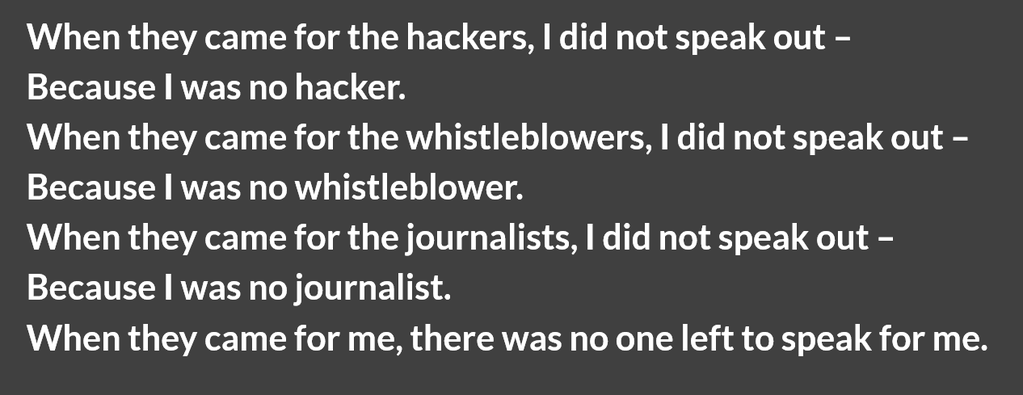The government’s proposed bill allowing a broad collection of metadata puts everyone’s privacy at risk.
Metadata (video) will not reveal the content of your communication, but it help with connecting the dots to easily infer what you are communicating and with whom.
After the revelations made by Snowden it is easy to see why many have just given up on the idea of having privacy in our highly digital world.
What are your options?
Ten years ago it did not seem too important for most to encrypt their communication. It also seemed far too cumbersome. Now we have more options that are very easy to use.
If you know how to use email and an iPhone or an Android phone, you too can keep your communication safe from prying eyes with ease.
Tutanota (email)
Tutanota is a German-based email service allowing its users to send encrypted emails to each other utilising End-to-end encryption.
If you send an email from your Tutanota email to someone who does not use the service, you can agree upon a password (important that this is done via a secure channel), then the receiver can read and respond to your email securely.
Visit Tutanota for more info: tutanota.de
Protonmail (email)
Protonmail is a Swiss-based email service that takes encryption a step further by making you to use two passwords — one for your account and one for your inbox.
It provides similar features as Tutanota. That emails between users are encrypted by default, and you can send encrypted, password protected email to non-users.
The difference is that they allow emails, only if encrypted, to be ephemeral (only lasting for a short period of time). Which is important if you want to pass on ephemeral information via email.
Visit Protonmail for more info: protonmail.ch
Wickr (messaging)
Wickr is high-grade encryption and focuses on providing an easy-to-use ephemeral messaging service. You can allow a message to exist in the receivers inbox for up to six days, or as short as three seconds.
Wickr is not limited to only text. You can also send images, voice messages and files.
They also have a built-in encrypted and private ephemeral image-sharing service. So if you want to share images with a chosen few, privately and securely, Wickr has you covered.
Visit Wickr for more info: wickr.com
Confide (messaging)
Confide is spruiked as Snapchat for the business world. It too is a ephemeral messaging app like Wickr. The difference is that when you have read a message, it will be deleted instantly.
It too allows users to send text, images and files, but not voice messages.
Visit Confide for more info: getconfide.com
Tor Browser (browser)
Tor Browser allows you to browse the Internet with greater privacy than your conventional browser. Not only has it pre-installed plugins to protect you when you are online, it uses the Tor network to hide your identity from prying eyes.
Visit Tor for more info: torproject.org
1Password (software)
1Password keeps your passwords, notes, bank details, etc secure. More importantly, it helps you create and easily use long, secure passwords. No more ilikepizza2 for all your online accounts. Instead you can create longer, more secure passwords, such as lkjawe%SdbRTyW5WEervmo9.
Visit AgileBits for more info: agilebits.com
More options
Electronic Frontier Foundation has a great list of privacy-focused messaging apps and services where they rate them on how secure they really are. In addition to their Secure Messaging Scorecard page, they have a page called Surveillance Self-Defence to help you avoid surveillance.
Not 100% secure
It is important to understand that any piece of software or service that promises to guard your privacy is not 100% secure (Tor is very upfront about this fact).
However, it is far safer than not using encryption at all. Kind of like the lock on your door for your home. It will not stop all burglars, but it will deter most to enter your home.
Change your habits, now!
The most important approach to guard your privacy is change your habits.
That might mean you will need to create new habits, new ways you communicate online, but it is either that or face the fact you are giving up your right to privacy.
Fighting for your right to privacy is not just about, but everyone’s right to privacy.
Disclosure: Jimmy Wall is not security expert, nor a cryptographer, but a journalist with a strong interest (for decades) in security, privacy and cryptography.
Featured image source: Tutanota


